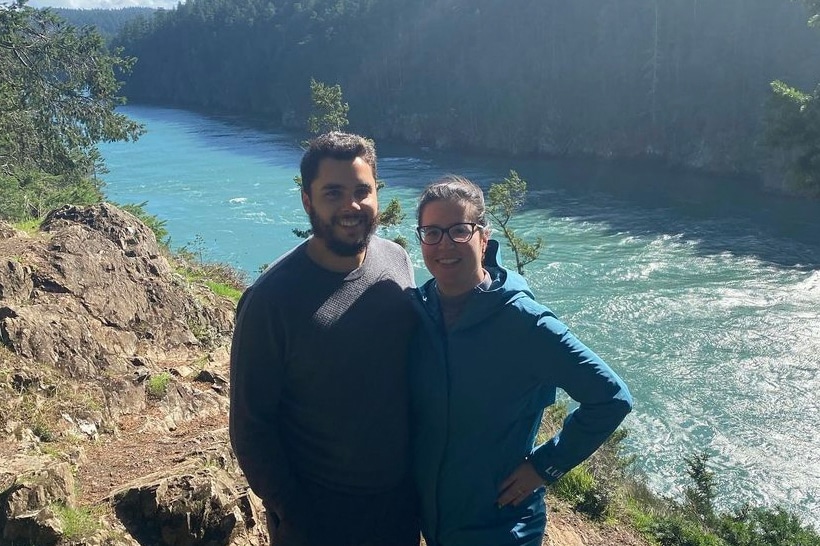


My career path has been a bit circuitous, but a love for science and analytical work has always been at the root of the journey. Prior to my current role, I served five years in the Army, three of which were spent leading teams specialized in identifying and dismantling chemical and biological weapons of mass destruction. I also spent a few years in Army logistics and deployed to Afghanistan, which gave me valuable perspective on how larger logistics operations underpin the function of any enterprise.
For both personal and professional reasons, I decided to separate from the Army and then spent the next four and a half years working for the Air Force, performing analytical work supporting nuclear security and Air Force intelligence, surveillance, reconnaissance, and cyber capabilities.
I currently work at the Department of the Army as an Operations Research Analyst. I started this job at the very beginning of the program, and I have been able to directly apply much of what I’ve learned in class to my current work.
I knew I was interested in analytics and machine learning but was also drawn to business, looking for a program that married these two interests. As I began researching programs, UVA very quickly stood out as a program that presented exactly what I was looking for in that regard. The focus of the program is squarely on using analytical tools to help solve business problems.
Another thing that drew me to the UVA program was my wife’s experience as a student in Darden’s Executive MBA Program. I witnessed firsthand the unique strength of the network she developed through her program, which was similarly hybrid in design. I valued the fact that she came out with close friends and a strong professional network, not just content-based learning.
As noted above, I absolutely use what we’ve been learning in class at my current job. I’ve taken a lot of the things I’ve learned in school to create or improve the machine learning and predictive products we use to inform senior leaders in the Army. Even the things I haven’t used directly add value, generating discussions with colleagues about how we might be able to incorporate some of these methodologies for a later project.
This has been one of the surprising things for me about the program. I thought it would take more time for me to be comfortable enough with these topics to begin using them at work. However, because of the structure of the program and the project-based curriculum, I started to realize that there were tools and techniques I could apply immediately. The program and knowledge you absorb from classmates really give you confidence in exploring the application of what you learn in your work life.
Be persistent, cultivate your curiosity, and remember that you learn as a team in this program. In my experience, when working with analytical tools, some of the best ideas and products come from people who start off with a humble foundation. A strong sense of curiosity and desire to grow as a team can generate more creative ways to look at and solve a problem. During my time in the MSBA program, it’s been incredible to see how quickly my classmates and I have developed confidence with various tools and techniques, as well as a comfort level with doing analytics-based projects. You learn so much from your classmates and instructors, so whether you enter the program with a foundation in some of these tools or you’re a novice, you will find a place grow skills and connection. The program is challenging, but working through the challenges in a team-based learning environment is a personally and professionally rewarding experience.
Learn more about the MSBA program and get updates on upcoming events, application deadlines and program news.